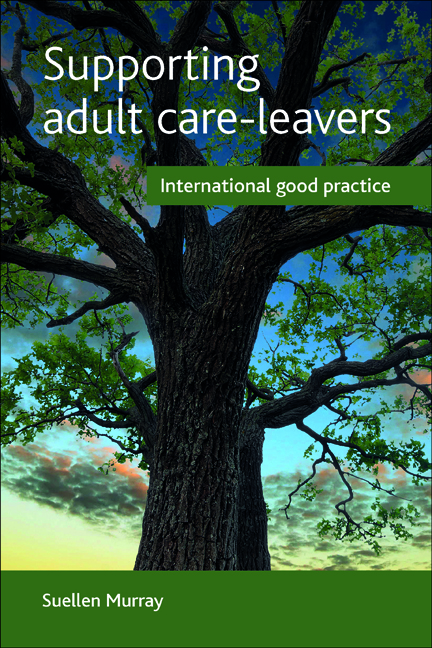Book contents
- Frontmatter
- Author biography
- Acknowledgements
- Contents
- List of abbreviations
- List of tables, figures and boxes
- One Introduction
- Two Care and its aftermath
- Three Public inquiries
- Four Apologies, memorials and other acknowledgements
- Five Reparation and redress
- Six Specialist support
- Seven Access to records and family reunification
- Eight Advocacy and consumer participation
- Nine Good practice in supporting adult care-leavers
- Notes and references
- Select bibliography
- Index
Seven - Access to records and family reunification
Published online by Cambridge University Press: 01 September 2022
- Frontmatter
- Author biography
- Acknowledgements
- Contents
- List of abbreviations
- List of tables, figures and boxes
- One Introduction
- Two Care and its aftermath
- Three Public inquiries
- Four Apologies, memorials and other acknowledgements
- Five Reparation and redress
- Six Specialist support
- Seven Access to records and family reunification
- Eight Advocacy and consumer participation
- Nine Good practice in supporting adult care-leavers
- Notes and references
- Select bibliography
- Index
Summary
I didn't know anything about the system, the foster family wouldn't help me whatsoever.… It was hard enough just to live life on an everyday level with the obstacles that I got hit with to just be sort of normal in society. (Roseanne, adult care-leaver, 2011)
In the opening quotation, Roseanne, a member of the Stolen Generations now aged in her 50s, refers to the challenges that she experienced over many years as she searched for information about herself and her family. Only more recently have services been available to assist her to do this, as well as to offer assistance for the range of other ‘obstacles’ she endured. Roseanne's is an extraordinary story where, through accessing her personal records, she was to discover that she was Aboriginal, that she had grown up in a foster home with another young woman who was her sister although she did not know this until many years later, and that she had many other siblings. She was also reunited with her father, with whom she had last had contact when she was two years old. When she was still only an infant, he had returned to England believing that he was no longer able to have any contact with his daughter. While acknowledging the different circumstances, the importance of this need to have a sense of identity is similarly illustrated in relation to child migrants:
just as much as adults, [former child migrants] have their own unique histories, however brief and fragmentary, that remain a crucial part of their sense of identity. Their knowledge and understanding of their past may be incomplete because they have ‘not been told’, or have been given confusing, false or contradictory accounts of what happened to them. Nonetheless, what they do know or believe is not easily forgotten, be it people, places, experiences or possessions. Although movement – especially from one culture to another – ruptures a past, it does not extinguish it; indeed, it is likely to intensify the desire to know and to remember the details of that past.
Moreover:
there is a great sense of the deep need to know about family and friends and to have a significant ‘connection’ with someone. It belies the widespread belief at the time that once in Canada children would find a ‘new life’ in a ‘new family’ and put the past behind them.
- Type
- Chapter
- Information
- Supporting Adult Care-LeaversInternational Good Practice, pp. 133 - 160Publisher: Bristol University PressPrint publication year: 2015



